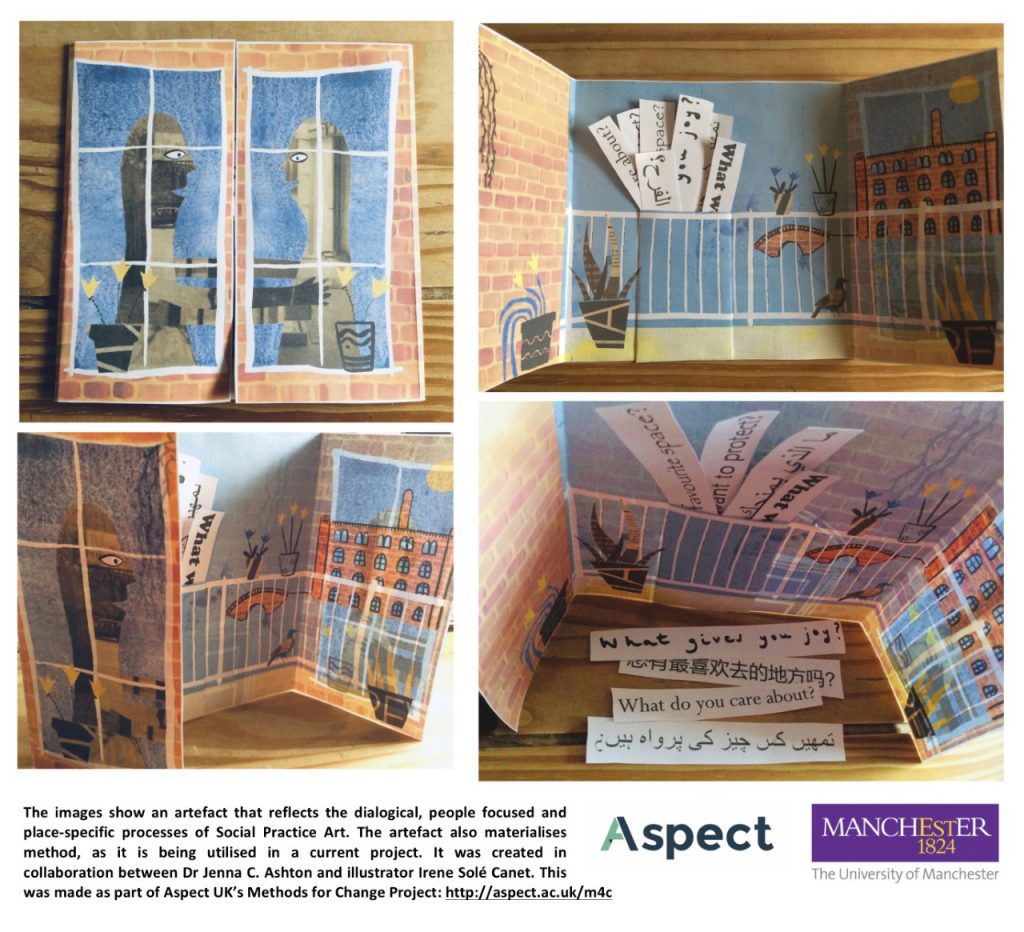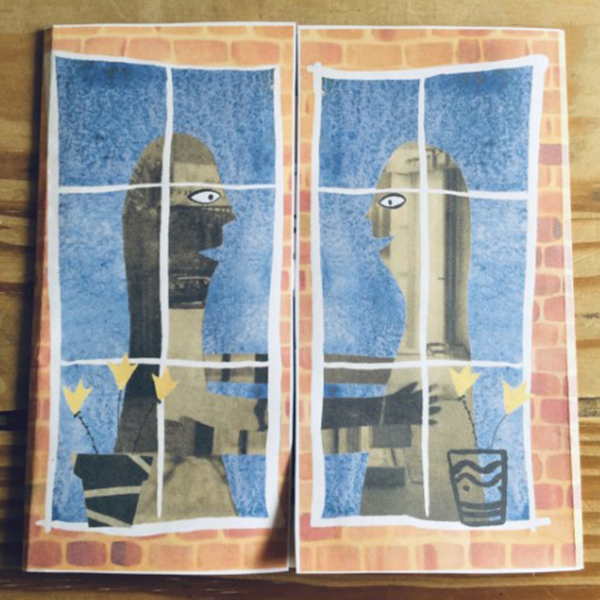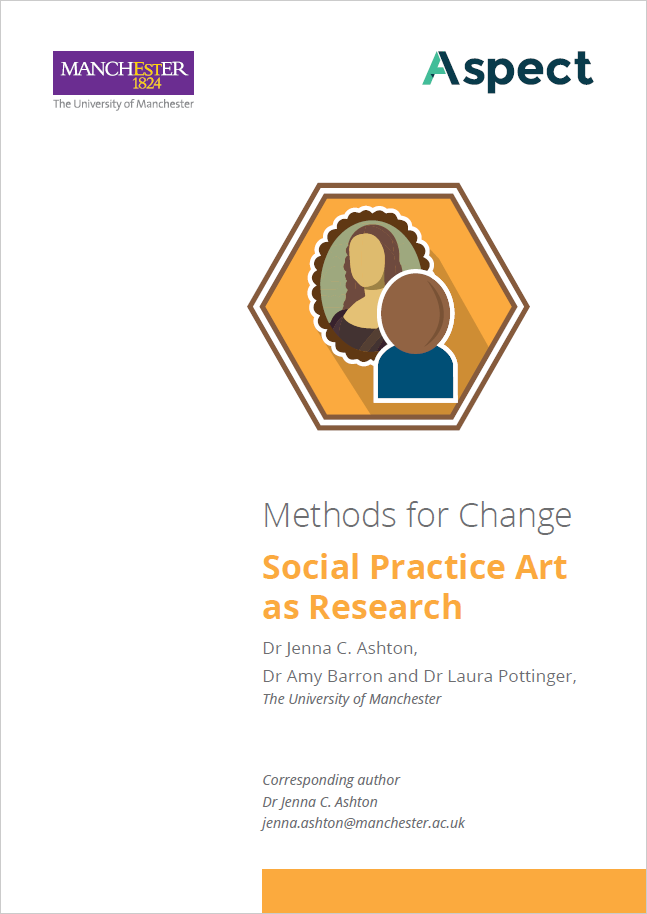Research Method: Social Practice Art as Research
Social Practice Art as Research is a multi-disciplinary and political practice which places people at the centre. This method can be used with individuals and large groups. It aims to foster social or political change through collaboration with individuals, communities and institutions through the creation of art, together.
Social practice encompasses a number of art mediums and methods, languages and forms of art. Social Practice Art as Research often culminates in public-facing installations or performance, with a parallel emphasis placed on the process of creating and doing, as much as an end work. It is precisely the uncertainty, unpredictability and spontaneity that comes from interacting and co-creating together with participants that makes this method an exciting approach. The social interaction component inspires, drives, or in some instances, completes the project (there is not always a final art ‘object’). With an agenda for social change at its heart, this method has been used to engage and empower a wide range of individuals and groups including local activists, charities, various residents’ groups, NGOs, government representatives and healthcare providers.

You can find all the research outputs from the Methods for Change series here






